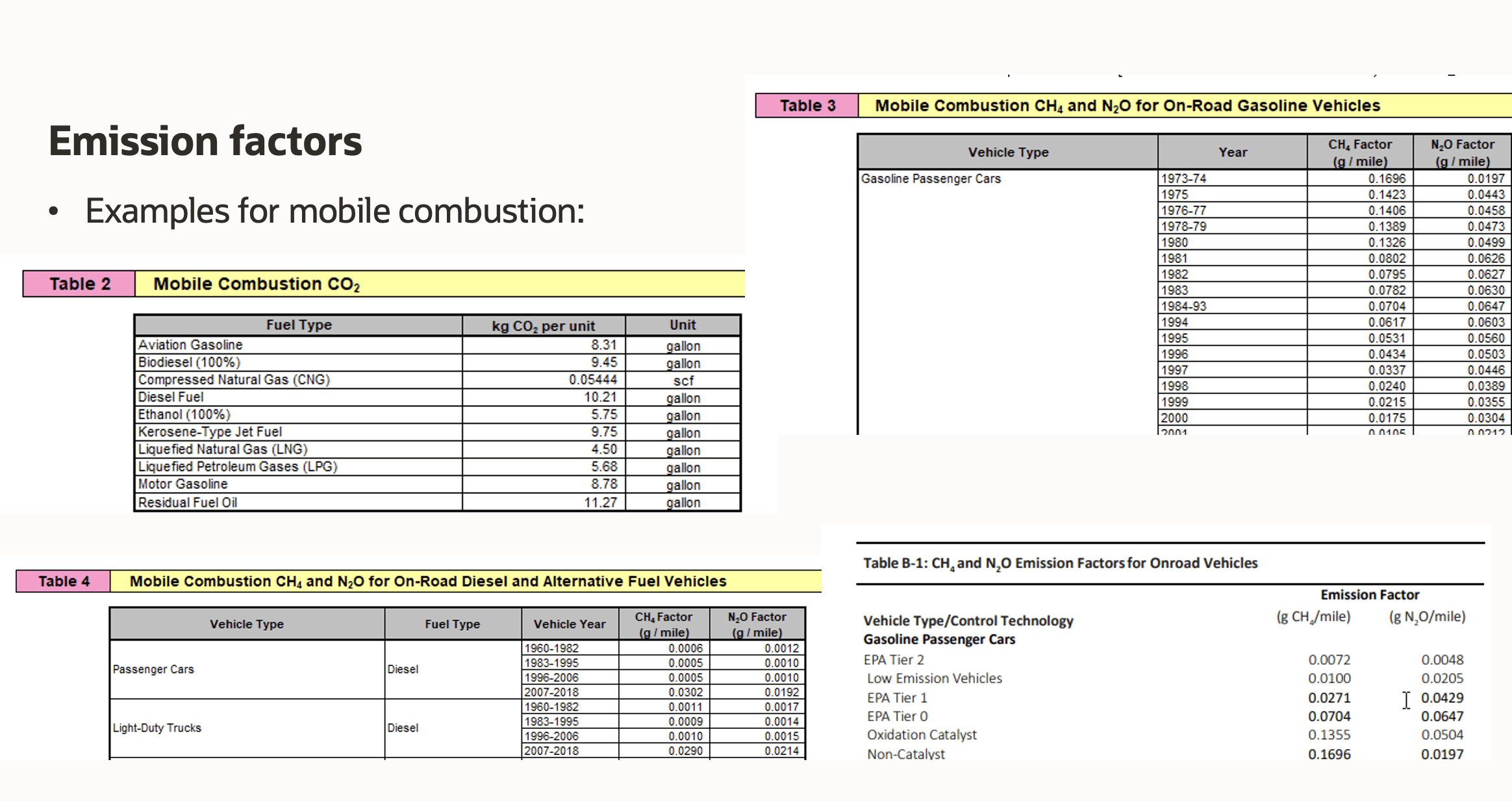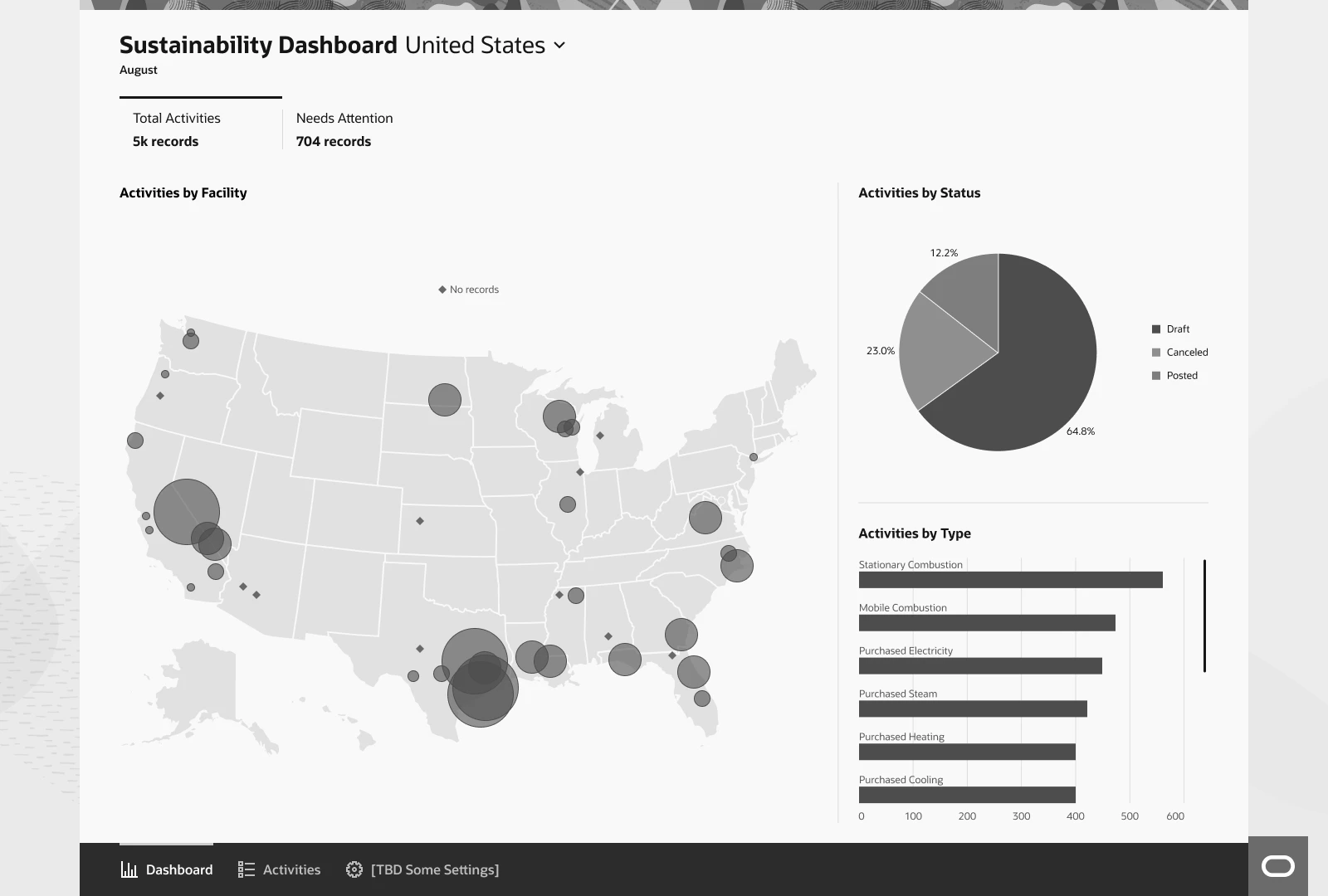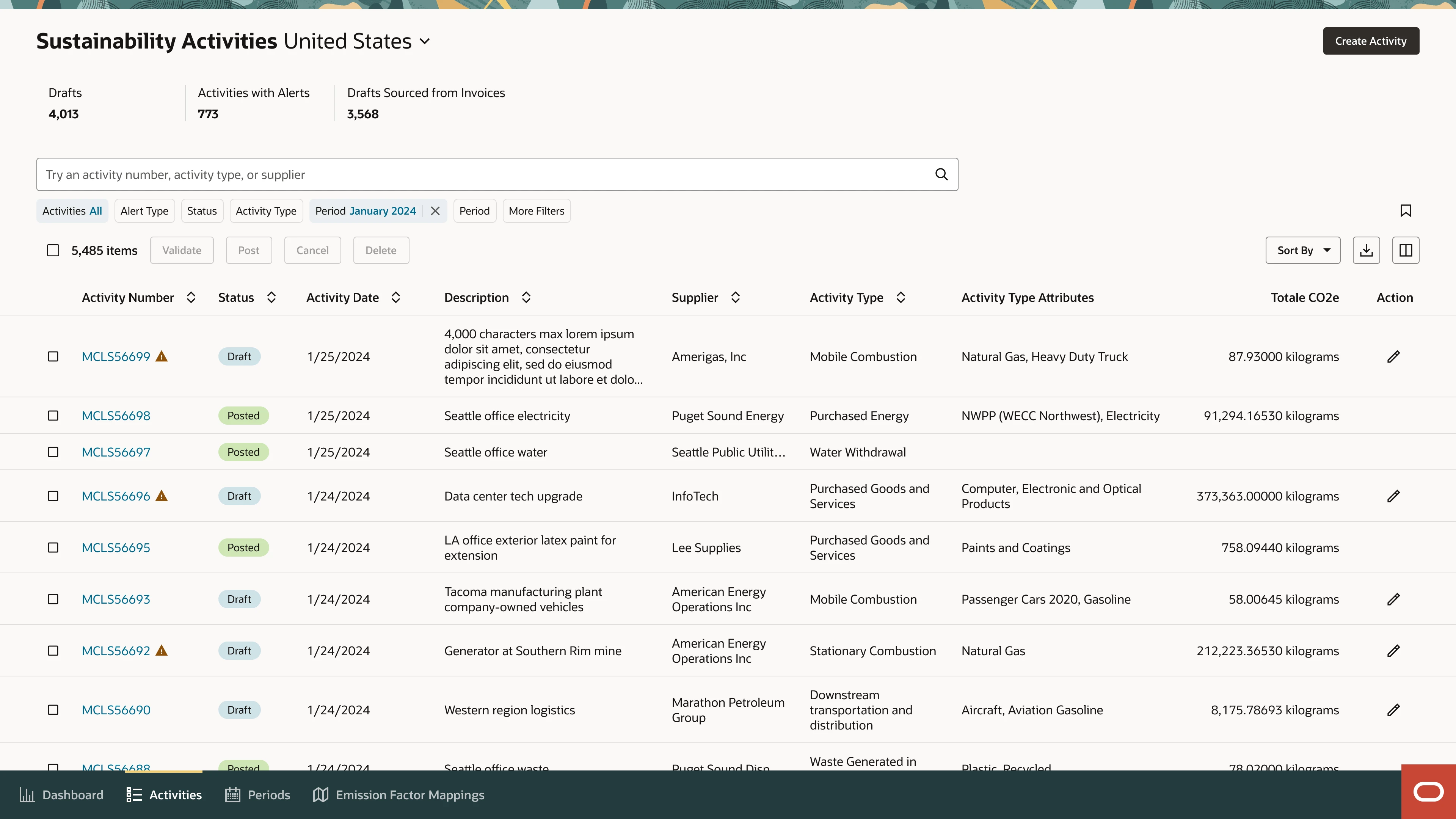Automating enterprise emission calculation to improve data accuracy, streamline reporting and drive sustainability insights
Overview
As companies increasingly prioritise sustainability, the ability to track and report ESG (Environmental, Social, and Governance) data efficiently is become crucial.
This case study explores the design of a digital platform integrated within Fusion, which seamlessly extracts transaction data, calculates carbon emissions, and presents insights.
The Problem
Companies find it difficult to track and report ESG (Environmental, Social, and Governance) data accurately. Existing methods rely on manual entry and multiple disconnected systems, leading to errors, inefficiencies, and challenges in meeting compliance requirements.
My Role
As a Senior Designer, i was responsible for UX research, wireframing, prototyping, and final UI design. I collaborated closely with product managers, engineering, and ESG domain experts to ensure alignment with business and user needs.
Research
Current Methods
Calculations in Excel
Emission Standards
Design Goal
Design an automated emissions tracking platform that integrates with fusion data to reduce manual effort, enhance data accuracy, and ensure compliance with regulatory standards.
Explorations
Final Designs
After several explorations and feedback from customers during user testing here are key designs that digitised and simplified extracting emission data.
Activities
The Activities tab lists sustainability activities from Fusion transactions, calculates emissions, and shows them in a tablefor tracking and validation.
Activity Details
A detailed overview of an activity record, including emission calculations, classifications, and sources.
Impact
The product's design achieved a 100% conversion rate, successfully replacing the use of Excel spreadsheets among customers.
Improved accuracy and efficiency by reducing manual calculation errors, saving time and effort enabling businesses to focus on strategic decision-making instead of data processing
The calculation methods and reporting met compliance requirements set by regulatory bodies like SBTi and SEC.
Identifying emission hotspots, helping businesses prioritise reduction strategies.















